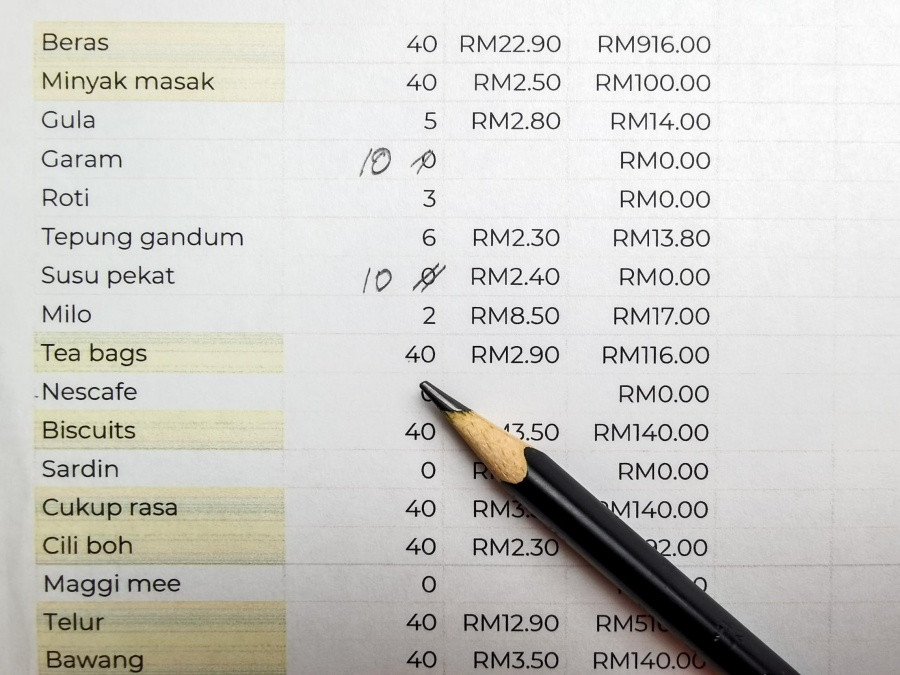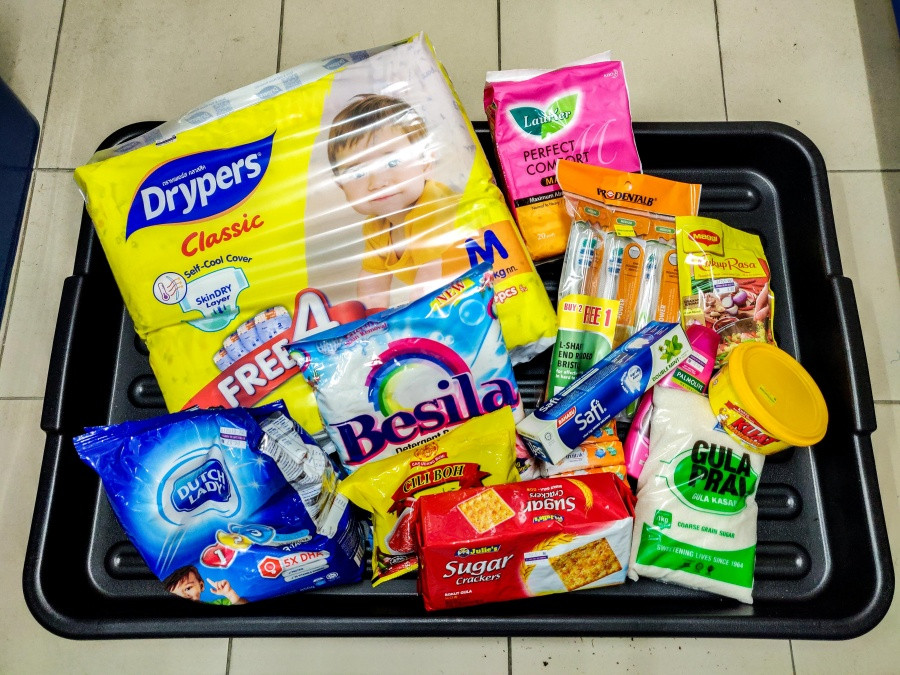How to build a food aid pack
by Alia Ali30 Jul 2021
During this time where many Malaysians are hungry and helpless, here are some suggestions on how to distribute aid and what to include in aid packs.
With the huge spike in Covid-19 infections around the country, even more folks are unable to leave their homes to look for work. Not every occupation can be pivoted online, which means those who were earning a living in sectors like tourism and hospitality are taking a huge hit to their household income. This is especially evident in Langkawi, where the Periuk test kitchen is located. A couple of us on the Periuk team have been working to raise funds and distribute aid to rural poor families in need across the island.
When building an aid pack, there are many factors that go into what an aid-giver prioritises. Perhaps the giver is compiling surplus items from grocery stores and restaurants. Maybe the giver is looking at their own lifestyle and building a list based on that. Or they could be looking at it purely from a price point.
However, the focus of these aid packs should be the recipient. It is absolutely worthwhile to take even 10 minutes to chat with a few potential recipients to ask what their needs and wants are. Different communities have different dietary preferences, whether for ethnicity or economic reasons. There will also be households with members that need specific items to cater to different abilities. Some questions that can be asked during this chat are:
- What does your household ideally consume throughout the week?
- How many members are there in your household?
- Are there any special circumstances we should know about?
However, large-scale aid pack suppliers, such as Refuge for the Refugees, have to consider the sheer volume of households they supply to, hence products may have been chosen for shelf-stability and ease of transport. Smaller-scale aid pack suppliers, such as us (and perhaps you!), can help fill in the gaps and complement other aid packs. We also work with sellers from the morning market, which means we help supplement the income of small businesses, and they have in turn given us discounts as a way of contributing to the aid packs. Win-win-win.
When we conversed with household representatives to gather information on their needs, we found that many aid packs they received consisted of items that were chosen for shelf stability. This unfortunately means that those packs tend to be extremely starch-heavy, lacking protein sources and practically no vegetables. A balanced, nutritious diet is extremely important for strong bodies and minds, and we at Periuk know that fact very well. We also know that flavour and variety is important for joyful meals, and it’s important that those in need enjoy their meals just as the rest of us do.
Here’s a rough list of items you can include in your aid packs, at a cost of about RM150:
10kg pack of rice
1 kg pack cooking oil
1 tray grade C eggs (30 eggs)
100g Maggi Cukup Rasa All-In-One seasoning
350g cili boh
200g small red onions
200g garlic bulbs
1 bunch long beans
2 petola (luffa)
1 head cabbage
1 medium pumpkin
2 carrots
2kg frozen chicken
1 pack Lipton teapot sachets (40 sachets)
1 pack sweet biscuits
2x 850g packs baby formula, which comes in formulations according to age group (if requested)
There is a delicate line to walk between prescribing someone’s diet through an aid pack, while also taking into account their usual diet and needs. For example, by providing Cukup Rasa, families can add salt and flavourings at the same time to their dishes. This means that you don’t (yet) need to provide an extra seasoning like soy sauce, and enables you to stretch your budget. Cili boh is provided because the families we cater to are from cultures that eat spicy food, so this means they can enjoy the flavours they are used to. Perhaps other items such as chilli powder or rice vinegar could be included in its place.
There are many vegetables that last for a while (listed above) and many can remain on the counter for at least a week. Even hardy leafy vegetables like sawi can be outside the fridge for over a day with no significant wilting. We also suggest providing frozen chicken or fresh fish from the market that are more flexible (flavour-wise) and can be more efficiently stretched than a can of sardines.
You may realise that our suggested list does not contain flour and sugar as many others do. Interestingly, during our pre-supply chats with representatives from over 80 households, only one household requested flour and sugar. Your mileage will vary, of course, and this drives home the point that different communities have different needs and wants.
Non-food items
People cannot survive on just food alone. Among the items that are both urgent and important are supplies for cleaning and personal hygiene. We’ve also found that many families’ gas cylinders have long been empty and require a refill, else they will still have to venture out to find firewood to cook with. A very common request is also disposable diapers, which come in different sizes, and also used by adults who have mobility concerns.
Here’s a rough list of items you can include in your aid packs, at a cost of about RM90:
750g laundry detergent (powder)
400g dish soap (cake type)
3x 80g body soap
180ml shampoo
175g toothpaste
1 multipack toothbrushes (3-4 depending on brand)
1 large pack sanitary pads (20 pieces)
1 large pack disposable diapers, according to size and life stage (if requested, 1 month’s supply)
1 x 12kg gas cylinder, exchanged for an empty one
Through our experience, we’ve discovered that having at least one liaison on the ground helps us reach families that could have slipped through the cracks. Not all households have smartphones to pin themselves on online maps, or even have ‘proper’ addresses. These liaisons help us identify even more households needing help.
Safety precautions are also extremely important. When servicing rural areas, identify the local JPKK (aka Jawatankuasa Pembangunan dan Keselamatan Kampung, a modern-day version of a penghulu, if you will) and they can help you distribute aid packs so you can limit the number of close contacts. PPE kits and face shields are also available at pharmacies, should you require them when supplying to red zones.
If you have any comments or suggestions on how to distribute aid, we’d love to hear from you. In the meantime, stay safe and stay sanitised.
Read next
An introduction to pangkang
A rice staple for the Dayak community

Eat your feelings: How can I make the most of packet mixes?
Boost your instant mixes and sauces

The 101: How to prepare keluak
Cleaning keluak for safe consumption






